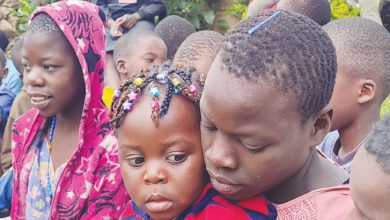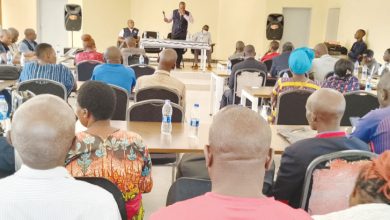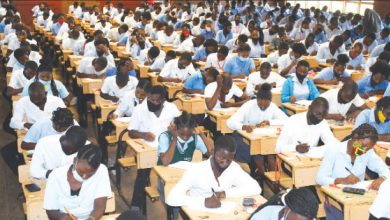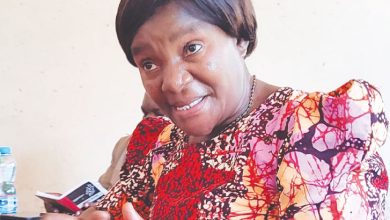Para sports bank on DisabilityAct to thrive
With almost non-existent disability sports facilities in schools and community sports centres, the Malawi Paralympics Committee (MPC) says it is banking on the Disability Act to change the status quo.
Despite para athletes’ success on the international scene and government embracing disability sports, the sport still faces a number of challenges.
Apart from most schools lacking disability friendly facilities, equipment for para sports such as wheel basketball, wheel volleyball and powerlifting, is also a challenge.
MPC president James Chiutsi acknowledged the challenges in an interview, but said they are counting on the Disability Act, which compels Malawi National Council of Sports to construct structures that have disability friendly facilities.
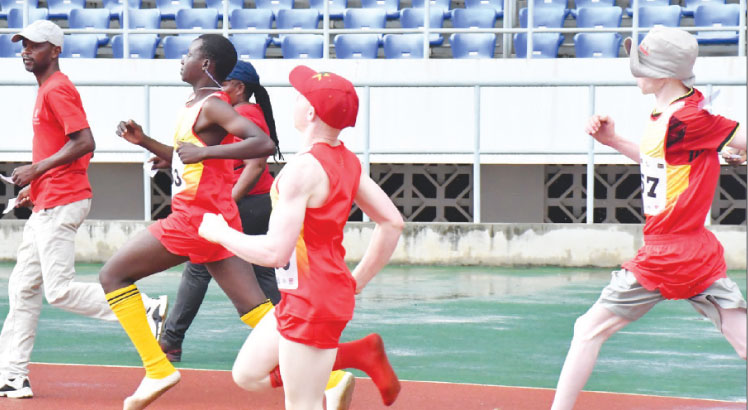
previous competition
He said: “We are happy that the new Persons with Disabilities Act is very clear on this one. Section 34 mandates Sports Council and other agencies to ensure that facilities and equipment are made available for sport for people with disabilities.
“We will try hard to ensure there is compliance. We will work with Sports Council and Malawi Council for Disability Affairs to see that the same are provided.”
Chiutsi added that they have taken a proactive approach by engaging other stakeholders to help.
He said: “Over and above the two, we are approaching members of the diplomatic community, NGOs [non-governmental organisations] and our international partners to help.
“We are courting stakeholders on the prospects of going into partnerships with MPC. It is tough, but we are positive that some will help.”
Chiutsi said the fact that the para sport is doing well on the international stage is enough reason for organisations to get motivated and support the growth of paralympics in the country.
“We are encouraged with the fact that our results are there for all to see,” he said.
Apart from facilities and equipment, the sport is also dogged by inadequate administrative and technical staff.
Despite establishing structures at district level, most of the officials lack training due to financial constraints.
Said Chiutsi: “The creation of the district committees has resulted in identification of more athletes; hence, the need for more administrative and technical staff. But the biggest setback is that para sport is expensive due to special care that athletes with disability need.
“Specialised equipment is also expensive as most of it has to be imported.”
Ministry of Youth and Sports spokesperson McMillan Mwale said in an interview that they will work with various stakeholders to ensure the sport thrives in schools and communities.
He said: “To achieve sport for all and inclusive sport, there is need for different stakeholders to join hands. As a ministry, this is incorporated in the current policy and we are reviewing the policy to ensure that the number of people with disabilities taking part in para sports, increases.
“We are also looking at close collaboration with Ministry of Education and Malawi Schools Sports Association [Massa] to help create a conducive environment for people with disabilities while also promoting sports facilities that are user-friendly,” he said.
Rose Kasunda, a specialised teacher in para sports at Nanjati Primary School in Lilongwe, said equipment is a challenge at her school.
“Challenges at our school include lack of equipment. For example, we introduced goal ball, but we improvise the ball. Normally the ball has a bell inside. This helps learners with visual impairment to sense the position of the ball,” she said.
“Secondly, there is need for modification of facilities to accommodate all.”
Samuel Grem, a javelin and discuss para athlete based in Manase Township, Blantyre said equipment and good training facilities is a problem.
“Like in my area, we don’t have sports facilities, so it means every day I have to go to Kamuzu Stadium to train which is a bit expensive in relation to transport. There are four of us with various degrees of disabilities in our area and it is frustrating when you don’t have disability friendly facilities,” he said.
While acknowledging the challenges, Massa president Blackson Malamula expressed optimism that the new sports policy being developed will address all the problems.
“We are finalising sports policy where the challenges of para sport will be addressed. For your information, in Malawi Youth Games we have para athletics and most of our sports teachers are trained in para sport, so it is easier to adjust those courts and grounds to be disability friendly,” he said.

